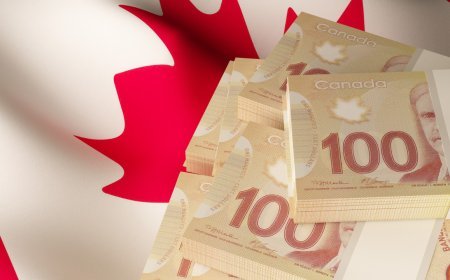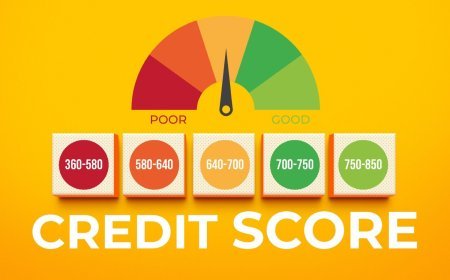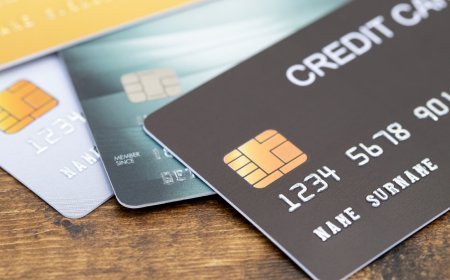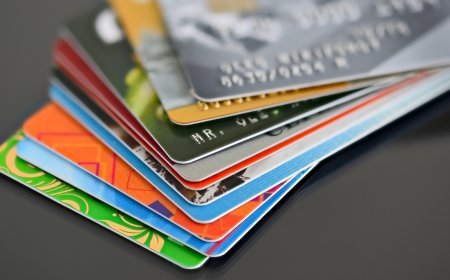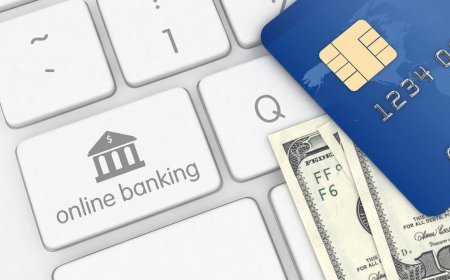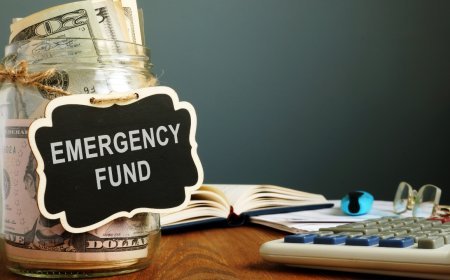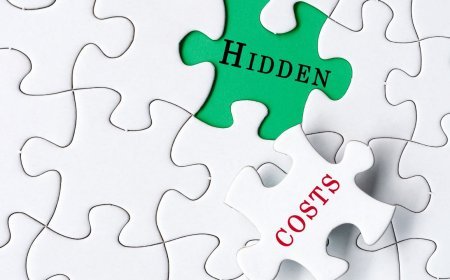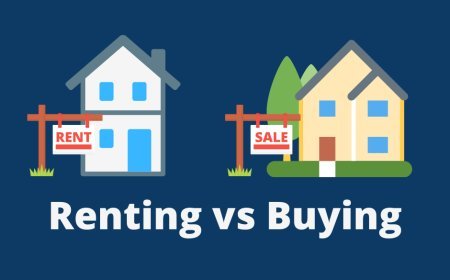Budgeting Tips That Work: Simple Strategies to Manage Your Money Effectively
Budgeting is an essential skill that can help you take control of your personal finance. By using effective budgeting tips, you can better manage your money and achieve your financial goals. This article was written by both financemastering.com and usbestnews.com teams.

Budgeting is an essential skill that can help you take control of your personal finance.
By using effective budgeting tips, you can better manage your money and achieve your financial goals. Simple strategies, like tracking your income and expenses, can lead to a clearer picture of your spending habits.
Have you ever felt overwhelmed by managing your finances? You’re not alone! Many people find budgeting challenging, but it doesn't have to be. With practical tips that work, you can learn to prioritize your expenses and save for the things that truly matter to you.
When you find a budgeting method that suits your lifestyle, it not only eases financial stress but also puts you on a path toward achieving your goals. Whether it's saving for a dream vacation or paying off debt, smart budgeting can make a big difference in your journey to financial freedom.
Understanding Your Finances
Getting a clear picture of your finances is the first step to budgeting effectively. It involves knowing how much money you make and how much you spend. Let's break down these important areas.
Income vs. Expenses
Your income is the money you earn, while expenses are what you spend. It's essential to list all sources of income. This includes your job, side gigs, or any passive income. Knowing your total income helps you understand how much you have to work with each month.
Next, list your expenses. These can be fixed, like rent or mortgage, and variable, like groceries or entertainment. Once you see both sides, you can identify areas for saving or adjusting spending. A simple equation helps:
Total Income - Total Expenses = Savings/Deficit
This equation guides your budgeting decisions.
Assessing Monthly Expenses
Assessing your monthly expenses means looking closely at what you spend. Start by tracking your spending for a month. Use a notebook, app, or spreadsheet to record every purchase.
Categorize your expenses such as:
- Needs: Housing, utilities, groceries
- Wants: Dining out, subscriptions, hobbies
- Savings: Emergency fund, retirement, investments
Identifying unusual or unnecessary expenses helps you see where you can cut back. You might be surprised by how much small purchases add up. Regularly reviewing these can keep your budget on track.
The Importance of Savings
Savings are crucial for financial health. Having an emergency fund can save you from stress during unexpected expenses. Aim to save at least 3 to 6 months' worth of living expenses.
In addition to emergencies, consider saving for long-term goals. This may include buying a home, funding education, or retirement. Automating your savings can help; set up direct deposits to transfer funds automatically each month.
Don't forget about taxes. Set aside a portion of your income for taxes if you’re self-employed. This practice can prevent financial surprises during tax season. Prioritizing savings now will benefit you later.
Setting Up Your Budget
Setting up your budget is an important step toward managing your finances effectively. By choosing the right budgeting method and understanding the difference between your needs and wants, you can create a plan that works for you.
Choosing a Budgeting Method
To create a budget that fits your lifestyle, start by choosing a budgeting method that works for you. Here are a few popular options:
- Zero-Based Budgeting: Every dollar is assigned a purpose, so your income minus expenses equals zero.
- 50/30/20 Rule: Allocate 50% of your income to needs, 30% to wants, and 20% to savings.
- Envelope System: Use cash for specific categories and place it in envelopes. Once it’s gone, you can’t spend more.
Pick a method that feels comfortable. Track your fixed expenses like rent and utilities, along with variable expenses like groceries and entertainment. Regularly review and adjust as needed.
Differentiating Needs and Wants
Understanding the difference between needs and wants is crucial for effective budgeting.
Needs are essential for your survival and well-being. They include:
- Housing
- Food
- Utilities
- Transportation
Wants, on the other hand, are non-essential and enhance your quality of life. Examples include:
- Eating out
- New gadgets
- Luxury items
Create a list separating your needs and wants. This will help you prioritize your spending. Focus on fulfilling your needs first and allocate any remaining funds to your wants. This approach ensures that your budget supports your financial goals while still allowing for enjoyment.
Saving for the Future
Saving for the future is essential for achieving your financial dreams. By establishing clear goals and having an emergency fund, you can ensure a secure financial path.
Establishing Savings Goals
To start saving effectively, set clear savings goals. Identify what you want to save for, whether it’s a vacation, a new car, or retirement. Break these goals into short-term and long-term.
Short-term goals might include saving for a new gadget or a trip within the next year. Aim to save a certain amount each month to reach these goals.
Long-term goals could involve larger sums for retirement or a home. Consider contributing a percentage of your income regularly. This helps build your savings over time.
Don’t forget to adjust your goals as your life changes. Regular check-ins can keep you on track.
Creating an Emergency Fund
An emergency fund is crucial for financial stability. This fund protects you from unexpected expenses, like medical bills or car repairs.
Start by aiming to save at least three to six months’ worth of living expenses. You can build this fund gradually by setting aside a small part of your income each month.
Keep your emergency savings in a separate, easily accessible account. This way, you won’t be tempted to dip into it for non-emergency expenses.
Using this fund wisely means you’ll have peace of mind. You’ll be prepared for surprises without derailing your financial goals.
Managing Housing Costs
Managing your housing costs is crucial to staying within your budget. By understanding your options for rent and mortgages, as well as insurance choices, you can make informed decisions that help you save money.
Navigating Rent and Mortgage
When it comes to housing, knowing whether to rent or buy is a big decision. If you choose to rent, aim to keep your rental costs below 30% of your income. This helps ensure you have enough left for other expenses.
If you’re considering a mortgage, it’s important to determine how much you can afford. Factor in monthly payments, property taxes, and maintenance costs. Use online calculators to estimate your monthly payments based on the loan amount and interest rate.
Make sure to shop around for the best mortgage rates. Even a small difference in interest rates can lead to significant savings over time. Remember, your housing choices should fit your financial situation and future goals.
Understanding Insurance Options
Housing insurance protects your home and belongings. There are two main types to consider: renters insurance and homeowners insurance.
Renters insurance covers your personal belongings in case of theft or damage. It’s generally affordable and can provide peace of mind. Homeowners insurance protects the actual structure and also includes liability coverage.
Check what’s covered under each type. Look for policies that cover common risks in your area, like fire or flooding. This way, you’ll be prepared for the unexpected without breaking the bank. Additionally, consider bundling your insurance with other policies to save money.
Smart Spending and Payments
Managing your spending and payments can help you stay on track with your budget. By controlling your habits and wisely using credit cards, you can handle unexpected expenses without stress.
Controlling Spending Habits
To control your spending habits, start by tracking where your money goes. Keep a record of all your daily expenses, including food, entertainment, and car payments. This will help you identify patterns and unnecessary costs.
Consider creating a simple budget with categories. Divide your expenses into needs and wants. Then, focus on reducing spending in the “wants” category, like dining out or subscriptions.
It can also help to set spending limits for each category. When you reach your limit, reassess your choices. Remember, small changes can lead to big savings over time.
Managing Credit Card Usage
Using credit cards wisely is essential for smart spending. Only charge what you can pay off within the month. This helps avoid interest and keeps your credit score healthy.
Make a list of all your credit cards and their balances. This way, you can manage payments effectively. If you can, pay more than the minimum payment to reduce debt faster.
Also, be mindful of automatic payments linked to your credit card. They can lead to unexpected expenses if you’re not careful. Regularly review these charges to stay in control.
Leveraging Budgeting Tools
Using budgeting tools can make managing your personal finances much easier. Digital tools and traditional techniques each have unique benefits that can help you stay on track.
Digital Tools and Apps
Digital tools and apps provide convenient ways to manage your budget. You can access them on your phone or computer, making it easy to track expenses anytime.
Popular budgeting apps include:
- Mint: Automatically tracks your spending and categorizes it for you.
- YNAB (You Need A Budget): Focuses on giving every dollar a job, helping you plan for future expenses.
These apps often include features like reminders and insights about your spending habits. You can also set financial goals and view your progress in real-time. Most importantly, they simplify the process of keeping your finances organized.
Traditional Budgeting Techniques
If you prefer hands-on methods, traditional budgeting techniques can work well. A classic method is the envelope system. With this method, you use cash for different spending categories. You divide your cash into envelopes for groceries, entertainment, and bills. Once the cash is gone, you can't spend more in that category.
Another effective technique is the 50/30/20 rule. With this rule, you allocate 50% of your income for needs, 30% for wants, and 20% for savings. This clear structure helps you prioritize your expenses better.
Both methods encourage you to be mindful of your spending. They can also be combined with digital tools for a comprehensive approach to managing your personal finances.
What's Your Reaction?
 Like
0
Like
0
 Dislike
0
Dislike
0
 Love
0
Love
0
 Funny
0
Funny
0
 Angry
0
Angry
0
 Sad
0
Sad
0
 Wow
0
Wow
0










